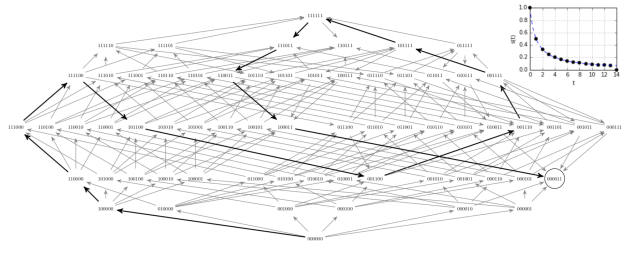July 27, 2019
by Artem Kaznatcheev
A few weeks ago, David Basanta reached out to me (and many other members of the mathematical oncology community) about building a community blog together. This week, to coincide with the Society for Mathematical Biology meeting in Montreal, we launched the blog. In keeping with the community focus, we have an editorial board of 8 people that includes (in addition to David and me): Christina Curtis, Elana Fertig, Stacey Finley, Jakob Nikolas Kather, Jacob G. Scott, and Jeffrey West. The theme is computational and mathematical oncology, but we welcome contributions from all nearby disciplines.
The behind the scenes discussion building up to this launch was one of the motivators for my post on twitter vs blogs and science advertising versus discussion. And as you might expect, dear reader, it was important to me that this new community blog wouldn’t be just about science outreach and advertising of completed work. For me — and I think many of the editors — it is important that the blog is a place for science engagement and for developing new ideas in the open. A way to peel back the covers that hide how science is done and break the silos that inhibit a collaborative and cooperative atmosphere. A way to not only speak at the public or other scientists, but also an opportunity to listen.
For me, the blog is a challenge to the community. A challenge to engage in more flexible, interactive, and inclusive development of new ideas than is possible with traditional journals. While also allowing for a deeper, more long-form and structured discussion than is possible with twitter. If you’ve ever written a detailed research email, long discussion on Slack, or been part of an exciting journal club, lab meeting, or seminar, you know the amount of useful discussion that is foundational to science but that seldom appears in public. My hope is that we can make these discussions more public and more beneficial to the whole community.
Before pushing for the project, David made sure that he knew the lay of the land. He assembled a list of the existing blogs on computational and mathematical oncology. In our welcome post, I made sure to highlight a few of the examples of our community members developing new ideas, sharing tools and techniques, and pushing beyond outreach and advertising. But since we wanted the welcome post to be short, there was not the opportunity for a more thorough survey of our community.
In this post, I want to provide a more detailed — although never complete nor exhaustive — snapshot of the blogging community of computational and mathematical oncologists. At least the part of it that I am familiar with. If I missed you then please let me know. This is exactly what the comments on this post are for: expanding our community.
Read more of this post




Blogging community of computational and mathematical oncologists
July 27, 2019 by Artem Kaznatcheev 2 Comments
A few weeks ago, David Basanta reached out to me (and many other members of the mathematical oncology community) about building a community blog together. This week, to coincide with the Society for Mathematical Biology meeting in Montreal, we launched the blog. In keeping with the community focus, we have an editorial board of 8 people that includes (in addition to David and me): Christina Curtis, Elana Fertig, Stacey Finley, Jakob Nikolas Kather, Jacob G. Scott, and Jeffrey West. The theme is computational and mathematical oncology, but we welcome contributions from all nearby disciplines.
The behind the scenes discussion building up to this launch was one of the motivators for my post on twitter vs blogs and science advertising versus discussion. And as you might expect, dear reader, it was important to me that this new community blog wouldn’t be just about science outreach and advertising of completed work. For me — and I think many of the editors — it is important that the blog is a place for science engagement and for developing new ideas in the open. A way to peel back the covers that hide how science is done and break the silos that inhibit a collaborative and cooperative atmosphere. A way to not only speak at the public or other scientists, but also an opportunity to listen.
For me, the blog is a challenge to the community. A challenge to engage in more flexible, interactive, and inclusive development of new ideas than is possible with traditional journals. While also allowing for a deeper, more long-form and structured discussion than is possible with twitter. If you’ve ever written a detailed research email, long discussion on Slack, or been part of an exciting journal club, lab meeting, or seminar, you know the amount of useful discussion that is foundational to science but that seldom appears in public. My hope is that we can make these discussions more public and more beneficial to the whole community.
Before pushing for the project, David made sure that he knew the lay of the land. He assembled a list of the existing blogs on computational and mathematical oncology. In our welcome post, I made sure to highlight a few of the examples of our community members developing new ideas, sharing tools and techniques, and pushing beyond outreach and advertising. But since we wanted the welcome post to be short, there was not the opportunity for a more thorough survey of our community.
In this post, I want to provide a more detailed — although never complete nor exhaustive — snapshot of the blogging community of computational and mathematical oncologists. At least the part of it that I am familiar with. If I missed you then please let me know. This is exactly what the comments on this post are for: expanding our community.
Read more of this post
Filed under Commentary, Meta, Personal Tagged with current events, mathematical oncology, research tools